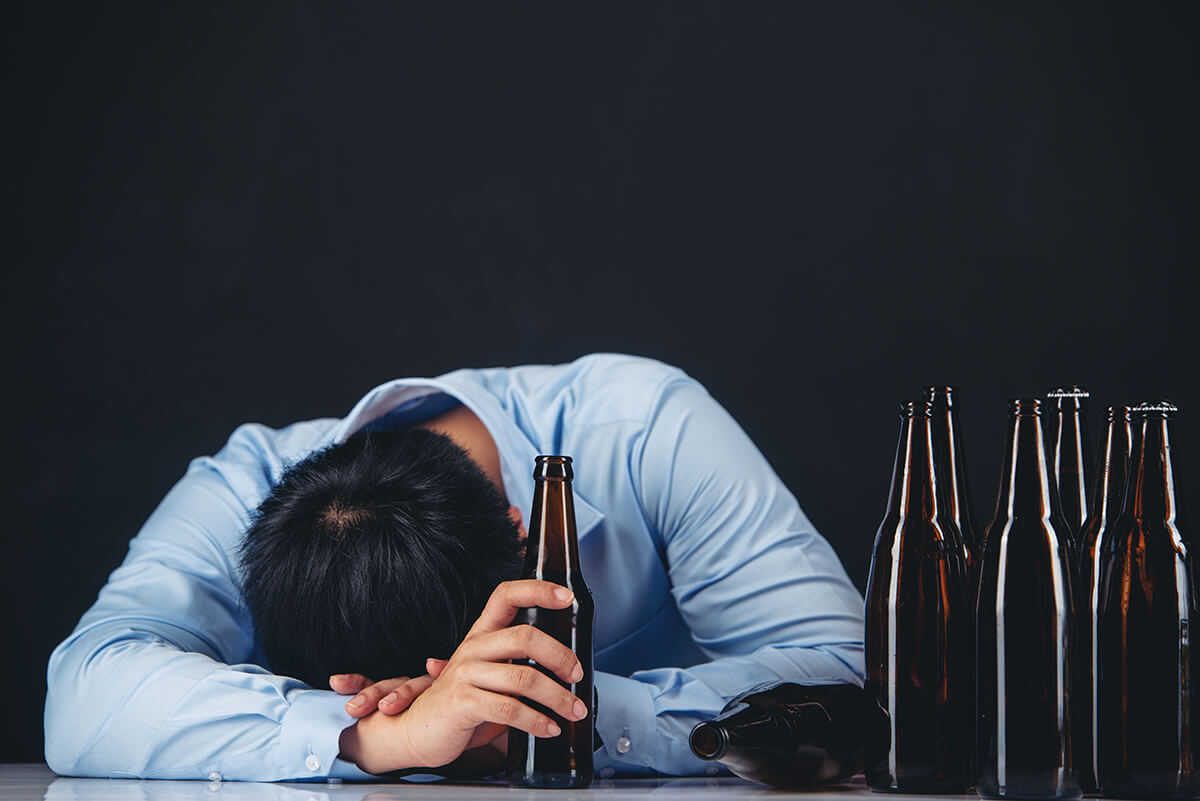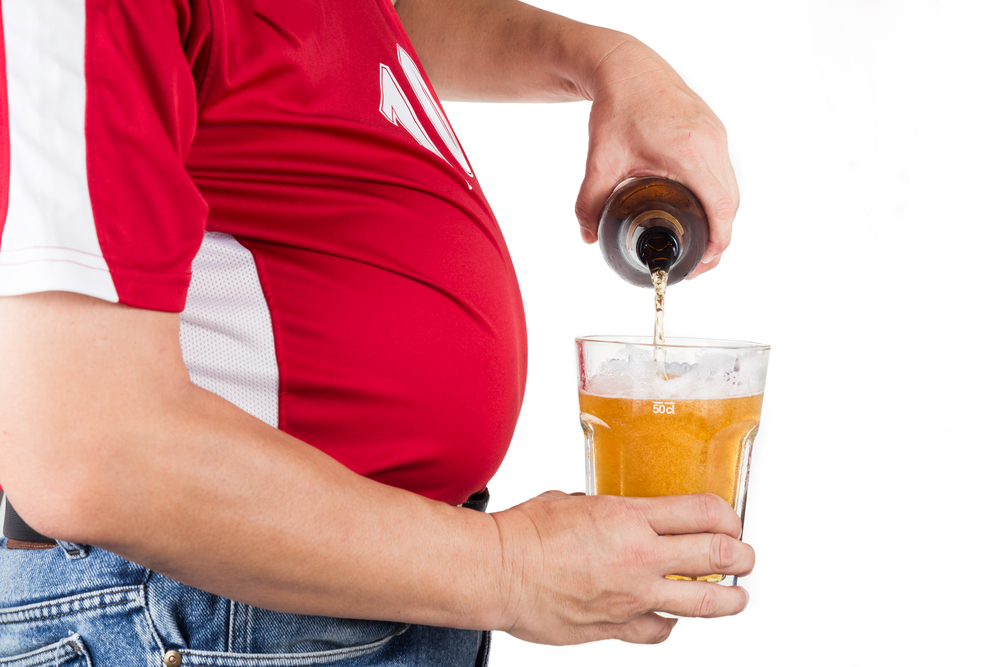How to Safely and Effectively Wean Off Alcohol
Alcoholism, more correctly known as alcohol use disorder (AUD), impacts more than 1 in 10 Americans over the age of 12. Luckily, there are ways to safely reduce your alcohol consumption and get your life back on track.
Read on to learn how to wean off alcohol, whether alcohol withdrawal can kill you, and other common questions about quitting drinking.
Tapering Off Alcohol Vs. Quitting Cold Turkey
Quitting drinking, “cold turkey,” means you suddenly stop consuming alcohol. Tapering off (or tapering down) alcohol means you gradually reduce the amount of alcohol that you consume over time.
Tapering off alcohol is much safer than quitting cold turkey.
When someone with an alcohol use disorder quits cold turkey, their body is unprepared for the lack of alcohol, and they will experience a collection of highly unpleasant and potentially dangerous symptoms known as withdrawal. Some symptoms of alcohol withdrawal, especially Delirium Tremens (DT) and seizures can be fatal, and hundreds of Americans die every year as a result.
Tapering off alcohol gives the body time to adapt to the lack of alcohol. This reduces the severity of withdrawal symptoms and chances of fatal complications.
Tapering down also increases the likelihood that the individual will achieve sobriety. Because quitting cold turkey produces such intense withdrawal symptoms, people are more likely to consume alcohol to stop them.
Although tapering down has many advantages, it is critical that you consult with a medical or addiction treatment professional first. In many cases, medically-supervised alcohol detox is the only safe way to stop drinking, especially if you’re suffering from AUD.
What to Expect When You Reduce Your Alcohol Consumption

Even if you are tapering down, you can expect withdrawal symptoms when you reduce your alcohol consumption. The symptoms experienced will depend on the severity of the AUD and can include:
- Anxiety, restlessness, nervousness, and unease
- Insomnia and other sleep disturbances
- Tremors or shaking, especially in the hands
- Profuse sweating, even in cool conditions
- Nausea, vomiting, and gastrointestinal distress
- Headaches
- Heart palpitations and elevated heart rate
- Increased blood pressure
- Mood swings, irritability, and aggression
- Loss of appetite
- Difficulty concentrating and confusion
- Seizures
- Delirium Tremens, which includes hallucinations, severe confusion, and cardiovascular instability
Because symptoms such as seizures and delirium tremens can be fatal, reducing alcohol consumption can be dangerous for some. It is therefore extremely important that you talk to your doctor before you start the process of weaning off alcohol.
How to Wean Off Alcohol
Weaning off alcohol is considerably safer and more effective than going cold turkey. If you are looking for how to taper off alcohol, you can follow these steps.
Consult a Medical Professional

Before you attempt to quit alcohol, it is critically important that you first consult with a medical professional.
Only a licensed medical professional can accurately assess your current condition and whether it’s safe for you to taper down. They will also be able to prescribe you medications that can curb your cravings or reduce your withdrawal symptoms.
In many cases, medical professionals will be able to provide you with advice as to which treatment options will work best for you and may be able to refer you to a treatment program if needed.
Loop in a Therapist or Addiction Specialist

Once you know it is medically safe to stop drinking, you should loop in a therapist or addiction specialist. They will be able to help you uncover the underlying causes of your drinking issues and properly diagnose any co-occurring mental health conditions that you may be suffering from.
If you are concerned about the money and time commitments of therapy and/or alcohol addiction treatment, there are budget friendly options such as telehealth, outpatient rehab, and government-sponsored programs. Also, your insurance should cover addiction treatment services, so look for therapists and/or rehabs in your network to help reduce the costs.
Make a Plan

It is critical that you make and closely follow a recovery plan. You should develop this plan while you are in treatment, so you can use it to protect and maintain your sobriety once your stint in treatment ends.
Your plan should include the following:
Goals: Why do you want to reduce or quit alcohol?
All your goals should follow SMART rules; they should be specific, measurable, achievable, realistic, and time bound. You should also include both short-term and long-term goals.
An example of a short-term goal would be to reduce alcohol consumption by half within the next month. An example of a long-term goal would be to achieve complete abstinence from alcohol within six months.
Triggers: Why and when do you drink?
Identify specific situations, emotions, environments, and people that motivate your drinking. Examples of triggers could include stress, social gatherings with alcohol, certain friends, and bars.
A therapist can help you understand your triggers and develop healthy coping skills for dealing with them. Add these coping skills to your plan and practice them often. Soon, they will become second nature and your triggers will not have as much of an effect on you.
Strategies: How will you reduce or quit alcohol?
You should include strategies to both reduce drinking and prevent relapse.
Examples of these strategies could include creating a daily schedule that minimizes idle time, finding activities to do during the days/times you would normally drink, and setting a limit on how many drinks you’ll have in a night.
Support: Who will you turn to for help?
It is important that your recovery plan has a list of people who can support you as you wean off alcohol.
Ideally, your support network will include mental health, medical, and addiction treatment professionals, as well as friends and family.
Make sure your support network knows about your goals and is committed to helping you achieve them. Support groups such as Alcoholics Anonymous and SMART Recovery should also be a component.
Build a Sober Community of Support

Surrounding yourself with other people who are sober will dramatically improve your chances of staying away from alcohol.
At first, it can be tough to find people and make new friends. Remember, relationships aren’t built overnight. It will take time and effort to grow these newfound friendships—but it will be worth it.
Luckily, there are many places you can meet other sober individuals, including:
- Support groups such as Alcoholics Anonymous and SMART Recovery
- Local activities and clubs that do not revolve around drinking (e.g. adult sports leagues)
- Social media
- Dating apps that provide an option to find friends
- Religious and spiritual groups
- Fitness classes and gyms
- Art and hobby classes
- Volunteer organizations
- Addiction treatment programs
- Rehab alumni groups
Make Setbacks Temporary

Relapse is a very normal part of the recovery process, and a majority of those in recovery will relapse at some point.
That’s why it’s important to remember that relapse is not failure.
In fact, a relapse can be a valuable learning experience that helps you avoid slipping in the future. A relapse can serve as an opportunity for you to refocus on your larger goals, practice self-forgiveness, and find ways to stay motivated.
If you do relapse, talk to your therapist or addiction treatment specialist who can help you quickly get back on track and prevent it from happening again.
Celebrate Yourself

Weaning off alcohol is a hard process, but it is something that you should be immensely proud of.
Reflect on your achievements and celebrate yourself as you hit milestones and stick to your plan.
Give yourself personal rewards such as taking yourself to a special, non-alcoholic meal, buying yourself a meaningful item, hosting a sober celebration, or planning a day out. Make sure to share your successes with your loved ones and especially your sober support network.
Benefits of Weaning off Alcohol
Weaning off alcohol yields many significant, life-changing benefits.
The mental benefits of weaning off alcohol include:
- Improved cognitive function
- Enhanced and more stable mood
- Better emotional well-being and control
- Improved mental clarity and stability
The financial benefits of weaning off alcohol include:
- No longer having to pay for alcohol
- Avoiding medical and legal expenses associated with alcohol
- More productive at work
The social benefits of weaning off alcohol include:
- Stronger interpersonal relationships
- Improved communication skills
- Increased social engagement
- More meaningful connections with others
The medical benefits of weaning off alcohol include:
- Improved nutrition and hydration
- Reduced risk of cancer, liver disease, cardiovascular disease, and many other chronic conditions
- Reduced likelihood of injury and alcohol poisoning
Here to Help You Safely Stop Drinking
Weaning off alcohol can not only dramatically improve the quality of your life, but it can also actually save it. If you are looking to reduce your alcohol consumption safely, contact Legacy Healing.
At Legacy, we’re dedicated to fully healing your mind, body, and spirit from the ravages of alcoholism. We utilize a three-pronged, holistic approach that combines the right psychotropic medications, cutting-edge clinical therapy, and an environment of supportive peers.
Call 888-534-2295 to speak with a treatment staff member about how we can help you quit drinking today.
How to Wean Off Alcohol FAQs
What are the risks of quitting alcohol cold turkey?
There are many risks associated with quitting alcohol cold turkey, including:
- Severe withdrawal symptoms
- Life-threatening seizures and convulsions
- Delirium Tremens, a fatal condition characterized by confusion, rapid heartbeat, fever, hallucinations, and seizures
- Dehydration and nutritional deficiencies
- Cardiovascular complications, including impacts on blood pressure and heart rate
- Psychological distress
- Reduced likelihood of achieving sobriety
- Death
Is tapering off alcohol safe and effective?
Tapering off alcohol is generally safer and more effective than quitting cold turkey. The withdrawal symptoms are less severe and dangerous, and the individual is more likely to achieve a lasting sobriety.
However, it still poses some serious risks, especially for individuals with long-term and/or severe alcohol problems. It is of the utmost importance that anyone considering tapering off alcohol first consult with a medical professional to determine their treatment needs.
How does tapering off alcohol work?
Tapering off alcohol requires the individual to gradually reduce the amount of alcohol they consume over time until they stop drinking altogether. This gives the mind and body more time to get accustomed to the lack of alcohol. Because the body has more time to adapt, the associated withdrawal symptoms are generally less severe, and some are avoided altogether.
Can you wean an alcoholic off alcohol?
An alcoholic can only safely reduce their alcohol consumption under medical supervision. Alcohol withdrawal can be deadly, especially for people with alcohol use disorder. If you or your loved one are suffering from alcoholism, seek out professional help from a detox facility or rehab to wean off alcohol.
How do you wean off alcohol at home?
While it is possible for some to wean off alcohol at home, it is highly inadvisable to do so without first consulting with medical and addiction treatment professionals. Alcohol withdrawal can be fatal, especially when someone attempts to go through it unsupervised.
If you’ve confirmed it is safe for you to wean off alcohol at home, set goals for yourself and make a plan as to how you will achieve those goals. It is best to have a mental health specialist available to support you as you wean off alcohol, as they can help uncover the underlying reasons for your drinking and teach you healthy coping skills.
Sources
- Healthline. (N/A). Your Guide to Tapering Off Alcohol.
- MedlinePlus. (2023). Alcohol Withdrawal.
- Australian Government Department of Health and Aged Care. (2023). How Can You Reduce or Quit Alcohol.
- Mayo Clinic. (2022). Alcohol Use Disorder.
- National Institute on Alcohol Abuse and Alcoholism. Alcohol Use Disorder (AUD) in the United States: Age Groups and Demographic Characteristics.






